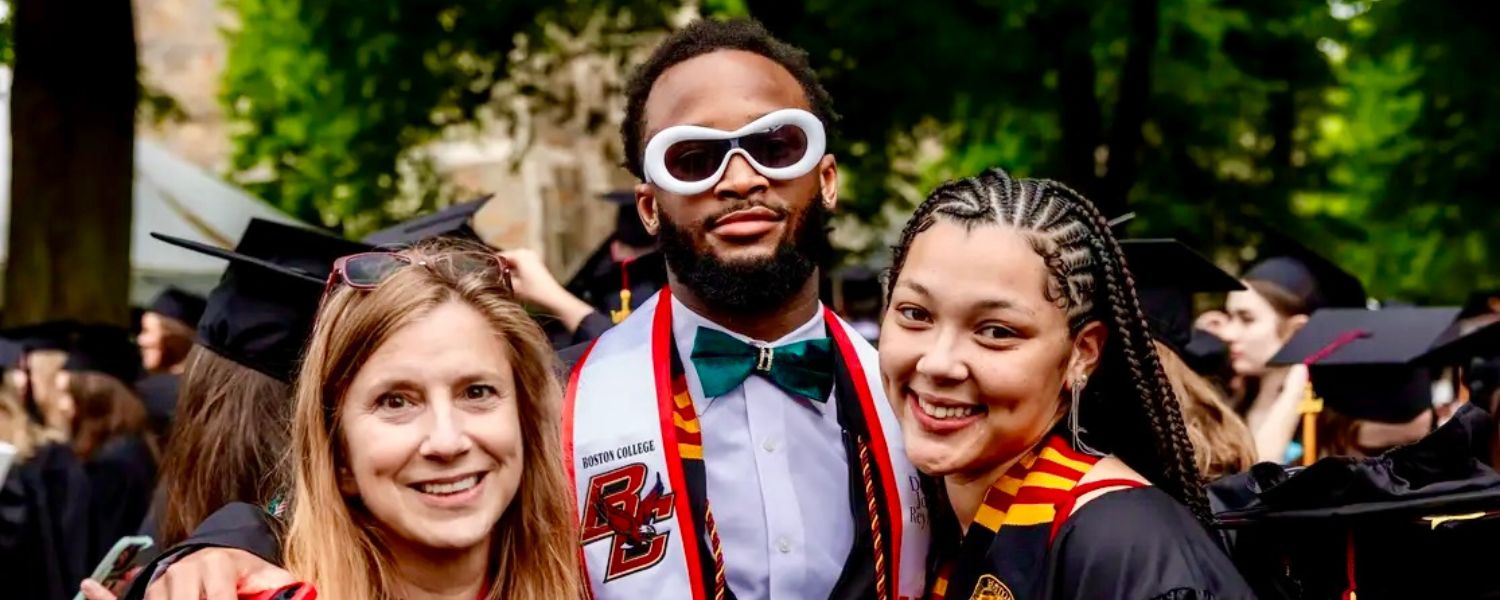


The Lynch School community is defined by collaborating for the common good. Each faculty member, student, and administrator actively supports one another and is dedicated to making a difference in the world. We approach education as an opportunity to transform minds and lives and in turn enhance the human condition, expand imaginations, and make the world more just.
24,500+
Lynch School alumni
11%
International students
Our five departments attract students from a variety of backgrounds and with a range of aspirations. Here are some of their stories.
Get the support you need to thrive, with mentoring, advising, and resources that help you balance academic success and personal growth.
Learn by doing—whether you're serving in local communities, exploring global opportunities, or gaining hands-on experience that makes a difference.
Experience all that campus has to offer—from clubs and student events to top-notch athletic facilities and resources that make every day at BC more rewarding.
“ We’re trying to help people develop not just as intellectual and civic beings but also as emotional, social, ethical, and spiritual beings, helping them to lead lives of meaning and purpose. ”